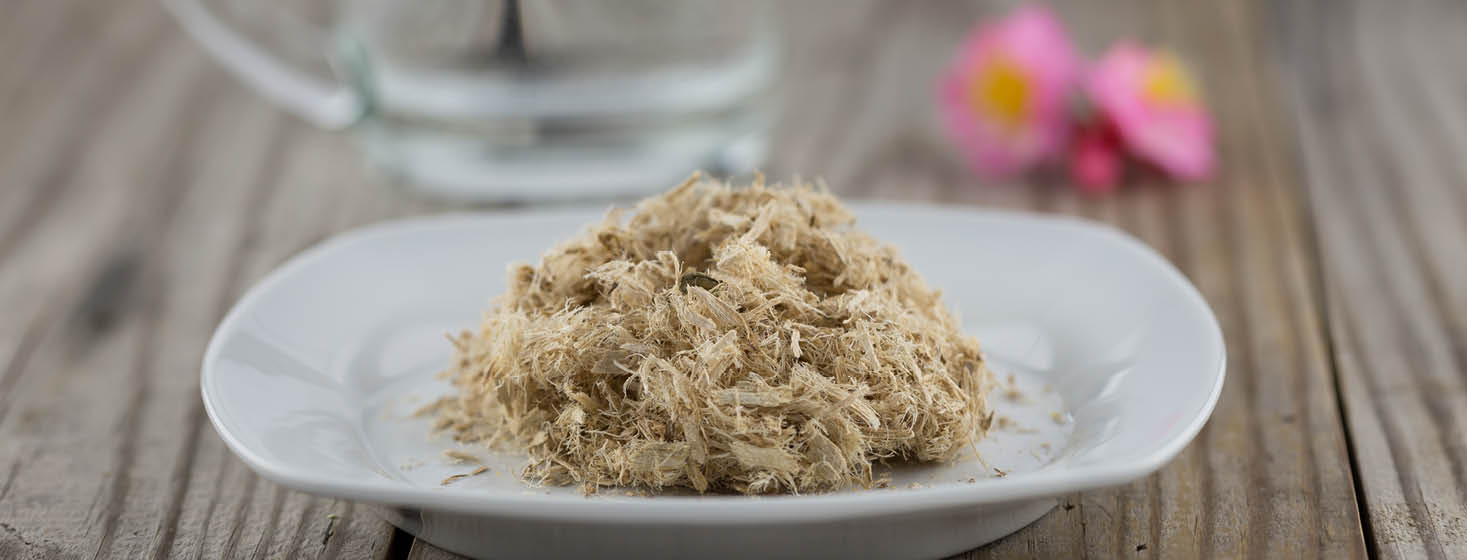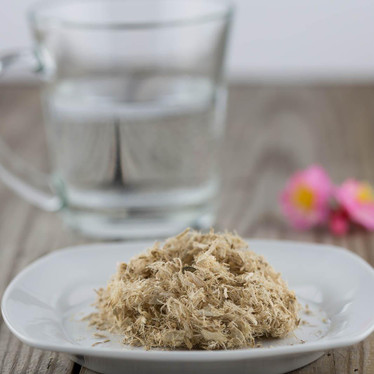
The slippery elm is a medium sized tree found in North American that has been used as a natural remedy for hundreds of years. Native Americans have traditionally used medicines made from the slippery elm tree for helping to heal wounds, boils, burns and ulcers. Taken by mouth it was also used to relieve such ailments as coughs, sore throats, stomach and digestive issues like constipation and diarrhoea. It was also commonly used to expel parasites and also has been used for the skin condition psoriasis.1
How does it work?
Slippery elm contains mucilage (definition: a polysaccharide substance extracted as a viscous or gelatinous solution from plant roots and seeds, and is used in medicines). This mucilage becomes a thick gel when mixed with water. The gels soothing properties are beneficial for the mouth, throat and digestive system. Slippery elm lozenges are prized by professional singers and opera stars in the USA as they provide gentle oral protection and help soothe the vocal chords and throat after long hours singing.
The inner bark is the prized part of the tree. It is dried and then turned into a lightweight, nutrient rich powder. The powder is then used in tablets, capsules lozenges, as tea and in loose powder form for mixing with water or turning into poultices. (If you try this make sure you never put on broken open skin).
Slippery elm is best known in the Western world for helping with digestive issues. It helps stimulate your body to produce more mucus that coats the respiratory and digestive tracts, soothing and clearing them of accumulated toxins. It also supports bowel regularity as the mucilage also supports healthy bowel movements. It can be safely used with conditions like gastroesophageal reflux disease (GERD), Crohn’s disease, ulcerative colitis and irritable bowel syndrome (IBS).2
Things to remember
If you decide to add slippery elm to your diet make sure you increase your water intake as it absorbs water from your digestive system to create the mucilage, and ensure you have a diet rich in fresh fruit and vegetable with plenty of fibre. There are no scientific reports of slippery elm interacting or causing any issues with other medications and supplements, which has contributed to its popularity. As it absorbs water, it may be advisable to take your slippery elm after any other supplements or medications to allow them a chance to be absorbed by your body first. Always seek the advice of your health provider before taking any herbal supplements if you are pregnant or breastfeeding and for children under the age of 10.
BioBalance Pure Slippery Elm Powder is a natural elm extract that supports healthy digestion and bowel regularity. You can buy it now from our secure online shop.
We’d Love Your Feedback
What natural remedies have you tried to support your digestion?
References
1 Brown AC, Hairfield M, Richards DG, McMillin DL, Mein EA, Nelson CD. Medical nutrition therapy as a potential complementary treatment for psoriasis — five case reports. Altern Med Rev. 2004;9:297-307.
2 Bock S. Integrative medical treatment of inflammatory bowel disease. Int J Integr Med. 2000;2:21-29.
2 Hawrelak JA, Myers SP. Effects of two natural medicine formulations on irritable bowel syndrome symptoms: a pilot study. J Altern Complement Med. 2010;16:1065-71.
2 Langmead L, Dawson C, Hawkins C, Banna N, Loo S, Rampton DS. Antioxidant effects of herbal therapies used by patients with inflammatory bowel disease: an in vitro study.Aliment Pharmacol Ther. 2002;16:197-205.
Rakel D. Rakel: Integrative Medicine, 3rd ed. Philadelphia, PA: Elsevier Saunders; 2012:43.
Rotblatt M, Ziment I. Evidence-based Herbal Medicine. Philadelphia, Penn: Hanley & Belfus, Inc.;2202:337-338.

